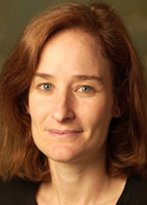 |
Thicker Than Oil: America's Uneasy
Partnership with Saudi Arabia
Rachel Bronson
|
| |
|
| About
the Book |
|
|
Overview
For fifty-five
years, the United States and Saudi Arabia were solid partners.
Then came the 9/11 attacks, which sorely tested that relationship.
In Thicker Than Oil, Rachel Bronson reveals why the
partnership became so intimate and how the countries� shared
interests sowed the seeds of today� most pressing
problem�Islamic radicalism.
Drawing on a wide
range of archival material, declassified documents, and interviews
with leading Saudi and American officials, Bronson chronicles a
history of close, and always controversial, contacts. She argues
that contrary to popular belief the relationship was never simply
about �oil for security.� Saudi Arabia�s geographic location
and religiously motivated foreign policy figured prominently in
American efforts to defeat �godless communism.� From Africa to
Afghanistan, Egypt to Nicaragua, the two worked to beat back
Soviet expansion. But decisions made for hardheaded Cold War
purposes left behind a legacy that today enflames the Middle East.
In this landmark
work, Bronson exposes the political calculations that drove this
secretive relationship. Her lively narrative is interwoven with
colorful stories of diplomatic adventures and
misadventures�including details of high-level backchannel
conversations, awkward cross-cultural encounters, and a bizarre
American request for the Saudi government to subsidize Polish pork
exports, a demand the U.S. Ambassador refused to deliver. Looking
forward, she outlines the challenges confronting the relationship.
The Saudi government faces a zealous internal opposition bent on
America�s and Saudi Arabia's destruction. Yet from the
perspective of both countries, the status quo is clearly
unsustainable. This book shows how this crucial relationship
evolved, and suggests ways to chart its future course.
Source: CFR
Shifting
Sands
By Toby Jones
From Foreign
Affairs, March/April 2006
"..Rachel
Bronson's Thicker Than Oil is a thoughtful history of U.S.-Saudi
relations. It challenges the common characterization of the
relationship as a bargain in which the Saudis provide easy access
to oil in exchange for U.S. security guarantees. Bronson, a senior
fellow at the Council on Foreign Relations, argues that this
simple generalization "ignores overlapping strategic
interests that drove together successive Saudi kings and American
administrations." Oil has been the principal reason for the
United States' interest in Saudi Arabia since World War II, but it
has not been the only one.." [Complete
review]
Reviews
and Endorsements (CFR)
|
| About
the Author |
|
Senior Fellow and Director for
Middle East and Gulf Studies Council on Foreign
Relations |

|
Bio:
Author of Thicker Than Oil: America's Uneasy Partnership With Saudi Arabia. Recipient of the Carnegie Scholars Award for research on Islamic politics.
Expertise:
U.S. security and foreign policy toward the Middle East; U.S. national security; Middle East politics and strategy; Persian Gulf; Iraq
Experience:
Adjunct Professor, Columbia University (2005); Senior Fellow, Center for Strategic and International Studies (1997-99); consultant, Center for Naval Analyses (1998-99); Adjunct Professor, Columbia University (1995); Fellow, Center for Science and International Affairs, Harvard University (1994-96).
Honors:
Carnegie Scholars Award, Carnegie Corporation (2003); Smith Richardson Research Grant (1996-97); Alice Paul Dissertation Award (1995).
Selected Publications:
Thicker Than Oil: America's Uneasy Partnership with Saudi Arabia (Oxford University Press, 2006); "Understanding US-Saudi Relations," in
Saudi Arabia in the Balance: Political Economy, Society, Foreign Affairs (C. Hurst & Col., Ltd, 2005); "Rethinking Religion: The Legacy of the U.S.-Saudi Relationship," Washington Quarterly (2005); "Where Credit is Due: The Provenance of Middle East Reform," National Interest (Summer 2005); Guiding Principles for U.S. Post-Conflict Policy in Iraq, Report of an Independent Working Group (Council on Foreign Relations Press/James A. Baker III Institute for Public Policy of Rice University, 2003); "When Soldiers Become Cops," Foreign Affairs (November/December 2002); "Questions of War and Timing," New York Times (2002).
More info:
http://www.cfr.org/content/bios/Bronson_NarBio_Jan06.pdf
Note: SUSRIS
provides information about books related to Saudi-US relations as a
service to you. No endorsement is implied.
|


